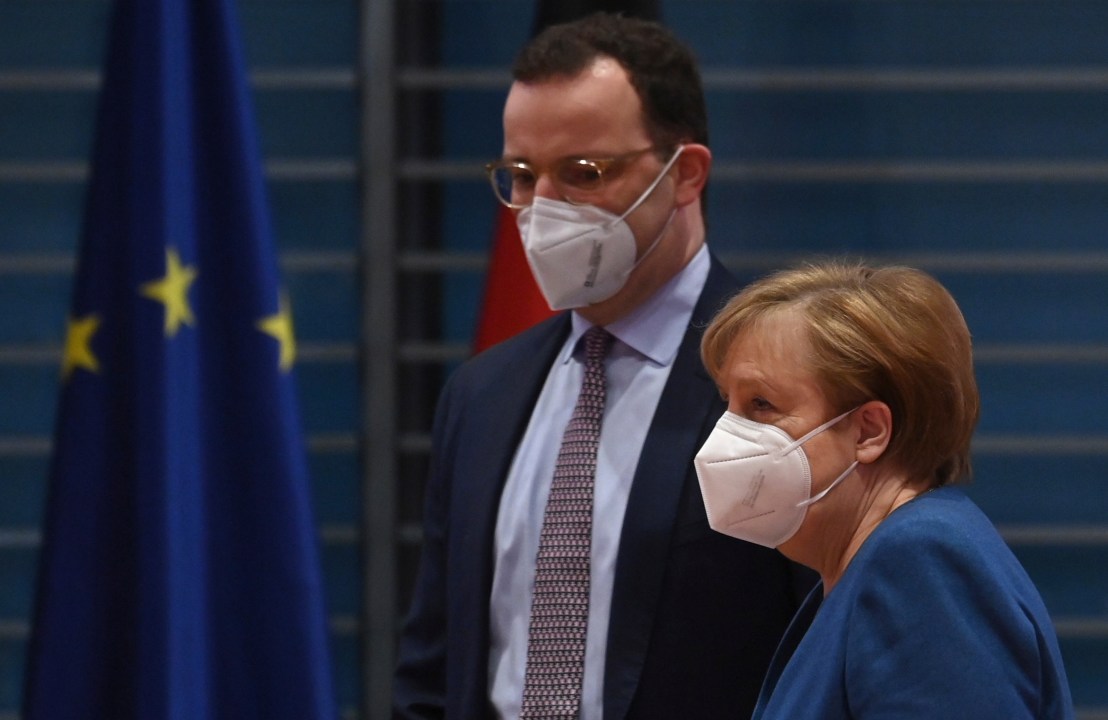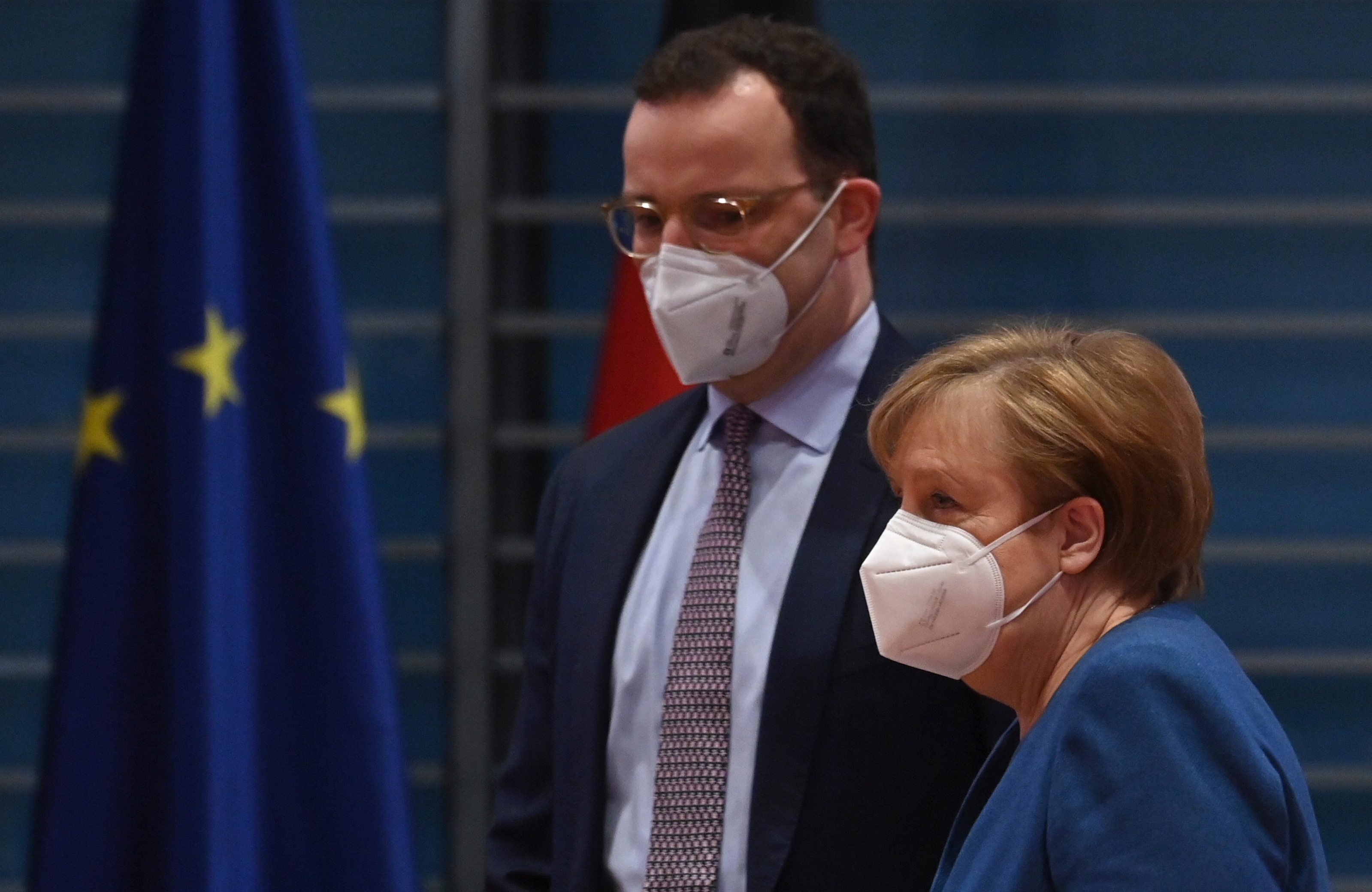European health ministries have not been happy places of late. Earlier this week, the German daily Bild reported a spat between national governments and the EU, frustrated at the bloc’s failure to procure vaccine doses in any serious numbers. That failure has now ricocheted back from Brussels, destabilising Germany’s increasingly fragile coalition government. So infuriated are Angela Merkel’s junior partners that they are now calling for a parliamentary inquiry into Germany’s vaccine failures, centring on one of her possible successors.
Problems began when health ministers in Germany, France, Italy and the Netherlands (the four countries with the most advanced pharmaceutical industries in the EU) joined forces to try to get their order books filled. However, it seems Merkel herself intervened, passing that responsibility on to the Commission, which promptly dropped the ball. The EU, population 450 million, will now only have 200 million Pfizer doses and 80 million Moderna jabs by Autumn at the earliest. All this coincides with the beginning of the German election year. Anger in Berlin has turned on health minister Jens Spahn, believed to be among the favourites to take over Merkel’s Christian Democrats.
During a video conference between Germany’s federal government and the 16 state governments yesterday, prominent Social Democrat state premier Manuela Schwesig openly attacked Spahn, arguing that his ministry failed to order enough Covid-19 vaccines. It is important to note that the two parties have been in coalition running Germany’s federal government since 2013, with the Social Democrats as the junior party. Participants on the conference call said that Schwesig was not letting up for the entirety of the meeting. A meeting where, among other things, it was decided that residents in coronavirus hotspots will be restricted from travelling more than 15 kilometres (9.3 miles) from their home without a valid reason.
The attack against Spahn did not come out of nowhere, Social Democratic leaders had already questioned the health minister’s vaccination management on Monday. Among the critics was finance minister Olaf Scholz, who also happens to be the favourite Social Democrat candidate ahead of the general election on 26 September. Scholz said in a television interview that Merkel and Spahn should have signed bilateral contracts for the distribution of vaccines so that Germany would have enough doses for country-wide vaccination. However, Germany, just like all the other EU member states, is still waiting on Brussels.
These delays have now erupted into seemingly open warfare — with the Social Democrats pushing for a parliamentary inquiry into Christian Democrat failures.
Spahn kept his composure during Tuesday’s conference call, as the Christian Democrats believe that their coalition partner had planned this ‘concerted action’ to discredit Spahn should he choose to enter the race to succeed Merkel. He has previously indicated that he would not run for party leadership and instead supported the candidacy of Armin Laschet, the state premier of North Rhine-Westphalia. But since Laschet’s approval ratings have dropped significantly while Spahn’s rose to an all-time high amid the pandemic, anything seems possible. Christian Democrats usually select their party leader as the lead candidate for the general election by default, but veteran party members have recently indicated that these positions do not necessarily have to be tied together.
The Social Democrats targeted the one figure they believe has the most potential to do well in September. Their attack seems to have as much to do with early election campaigning as it does with Germany’s sluggish vaccine roll-out. But the plan could backfire — the more Spahn is attacked, the more his enemies within his own party might feel the need to rally behind him.
In fact, this is a risky game in more ways than one. The Social Democrats could be eliminating their only route back to power after the general election if they continue their blatant attacks on their current coalition partners. The talk among many Christian Democrats in Berlin is that they would rather work with the Greens who have held second place in national polls for quite some time.







Comments